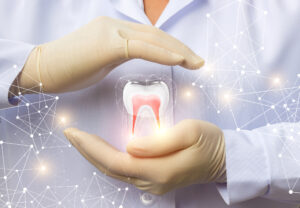
Biological dentistry emphasizes the critical link between oral health and overall wellness, placing significant importance on biocompatibility. Simply put, biocompatibility refers to how well dental materials interact harmoniously with the body.
Dental professionals frequently use a range of materials in procedures, such as composites, amalgam, and glass ionomer fillings. Among these, amalgam is known for potential health concerns due to its mercury content. Mercury can pose risks, making it essential to consider safer, biocompatible alternatives.
In biological dentistry, biocompatibility guides every decision, including the selection of prosthetic materials. Dental ceramics are often preferred over metal alloys, as alloys containing nickel or other metals may trigger allergic reactions or sensitivities in patients.
Yet, ensuring complete biocompatibility presents challenges. Dental materials might degrade, and individual patient responses can vary significantly. Moreover, the oral environment is complex, with interactions between materials and oral tissues sometimes leading to unexpected reactions. Additionally, new dental materials regularly enter the market, bringing unique compatibility concerns that dental professionals must carefully evaluate.
Despite these challenges, biological dentistry continuously evolves, driven by a commitment to improve patient safety and outcomes. Research and innovations in bioactive materials, sustainable dental practices, and tissue regeneration techniques are central to this growth. These advancements aim to maximize biocompatibility, providing effective and safe treatment options.
The ultimate goal of biological dentistry remains clear in its mission to deliver dental care that prioritizes patient health, safety, and satisfaction. By selecting biocompatible materials and practices, dental professionals can help patients achieve better long-term health outcomes and greater comfort.
Biological dentistry represents a dedicated effort to merge dental excellence with patient-friendly, biocompatible solutions. Although the path to complete biocompatibility has obstacles, the commitment of biological dentistry to patient well-being makes it a promising and necessary approach for modern dental care.
The International Academy of Biological Dentistry and Medicine (IABDM) is a network of dentists, physicians, and health professionals committed to promoting biological dentistry. We invite you to visit our website to learn more about our advocacy for biocompatible dental materials and toxin-free practices.
